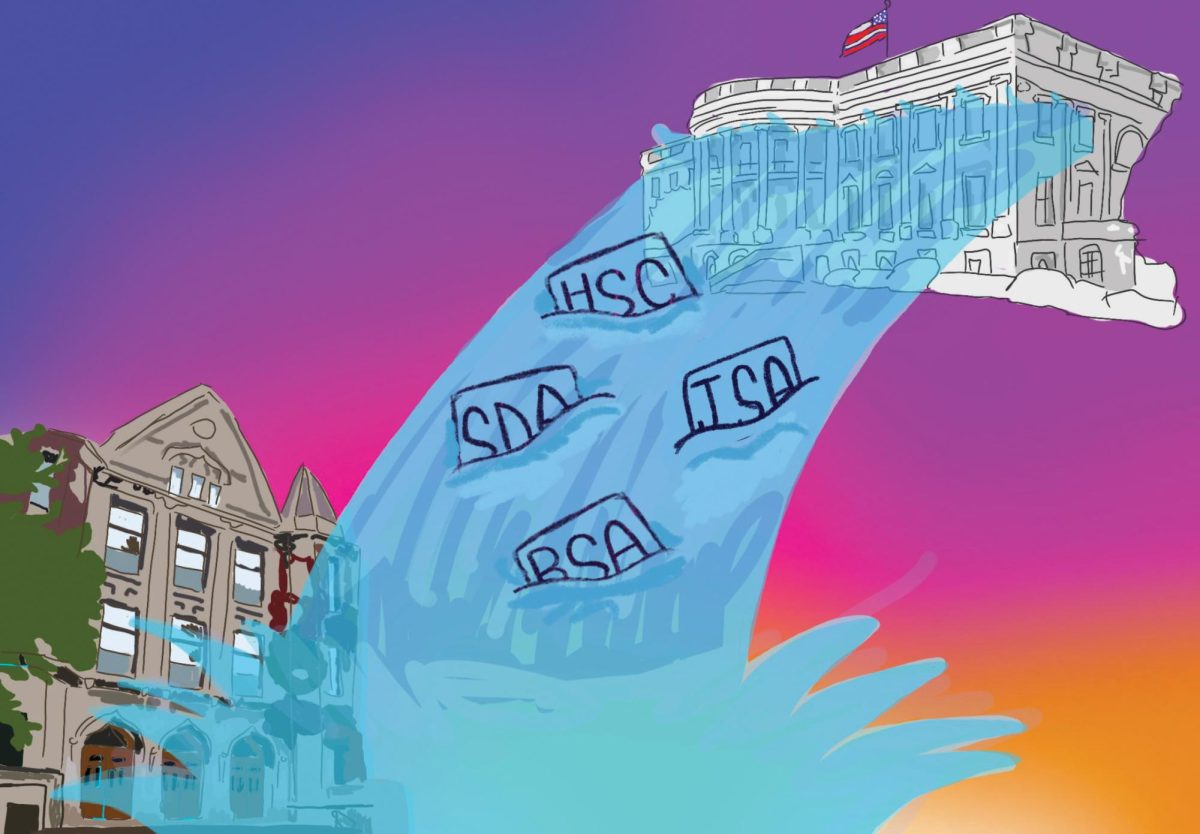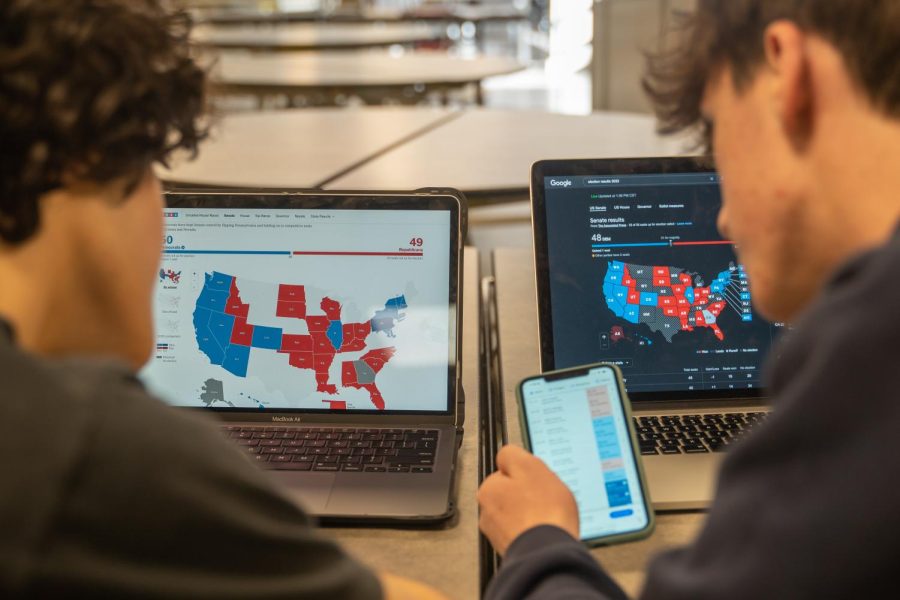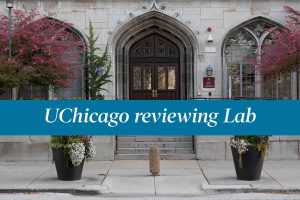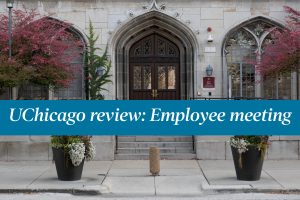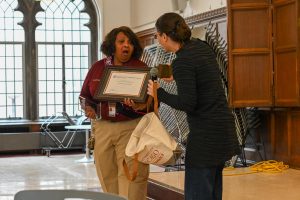Political implications of state, national elections worry students
Students followed the Nov. 8 midterm elections anxiously, leading to a wide variety of reactions in the U-High community.
November 14, 2022
U-High students watched the Nov. 8 election results with their attention on how issues they care about — from climate change to racial disparities — will be acted upon by political leaders, and some students worried about the implications of elections at the national, state and local levels.
In Illinois, J.B. Pritzker was reelected governor, and the majority of seats in the General Assembly stayed in the Democratic party, allowing Illinois to continue its blue streak. Tammy Duckworth was reelected as U.S. Senator.
Junior Lincoln Richardson remains uncertain about the country’s future.
“The results only give me a slight feeling of comfort that America hasn’t slipped firmly into fascism with the Republican Party becoming even further right,” Lincoln said. “I am very worried about fascist America because it could happen. I hope that in the next election that some working class parties can take any seats in this virtual one-party state.”
Junior Rathin Shah also has concerns with the election outcomes.
“I’m worried about how abortion access will be handled moving forward with states like Florida and Ohio likely adding new restrictions,” Rathin said. “Also, with [Florida Gov.] Ron DeSantis re-elected, I’m worried about the attitude toward transgender people in the U.S. right now.”
Rathin thinks the election results have multiple implications for the country’s politics.
“The election results paint a clear picture of what’s important to US citizens right now. ‘Trump Republicanism’ is on a downtrend with many of the election-denying Republicans underperforming,” Rathin said. “Personally, I am glad that [Pennsylvanian] John Fetterman won a seat in the Senate, and I’m curious what this means for progressive politics going forward.”
Gender equality was one of the specific issues through which students viewed the election results. Abortion rights were as important to voters as inflation, according to exit polls. Reuters reported about “six out of 10 voters said they were ‘dissatisfied or angry’ about the U.S. Supreme Court ruling that overturned Roe v. Wade.”
In a Midway poll from October, 35% of students said abortion was the most important election issue.
Senior Hala Attassi was among those who viewed the election through a women’s and abortion rights lens.
“I was scared for my rights as a woman during the election not knowing if my rights would be taken away or not, but with Pritzker, I feel safe,” Hala said. “This is a scary time for women, and we need someone who will keep our rights as protected as possible.”
Junior Alexie Edwards believes the most pressing concern is climate change, and is hopeful that the elected politicians add a focus on alleviating the issue to their agenda.
“I think local governments could crack down on climate change a little bit better,” Alexie said. “If you start at the smaller level, it really helps affect the overall level.”
Senior Donovan Miller is glad that the elected politicians are Democratic and hopes they focus more of their time and energy on communities of color.
“I see a lot of disparities in the economic well-being of minority communities and white communities,” Donovan said. “So if politicians could address that and try to, like, invest in communities that honestly a lot of people have given up on. That’s an important issue.”
Chicago voters will have another election soon. The municipal election for mayor, city treasurer, city clerk and city council will be Feb. 28. The strongest piece of advice Donovan has for eligible students in upcoming elections: vote.
“Some of you will be 18 in the presidential election, so I recommend voting very heavily,” Donovan said. “It’s important to exercise your rights.”




















